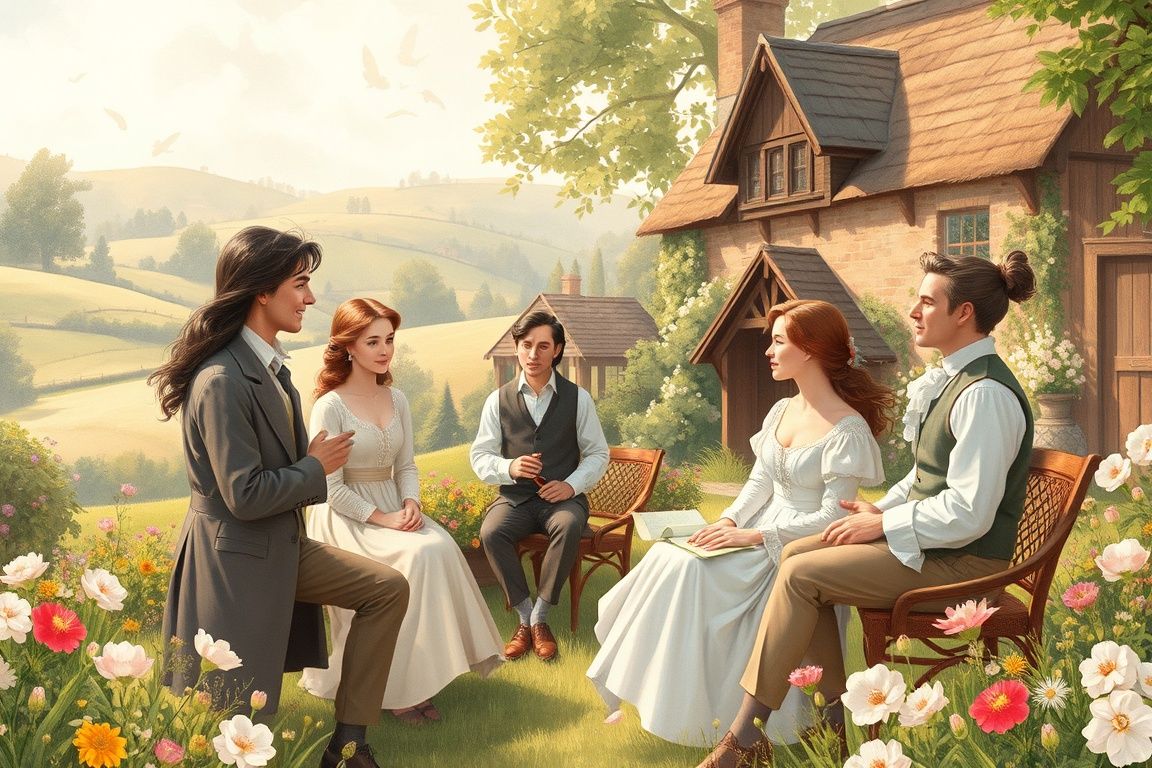Early English Classics
Why It’s Worth It
Improve your literary analysis skills by studying the narrative techniques of foundational texts.
Gain a deeper understanding of how early literature influenced modern storytelling and societal values.
Develop critical thinking through the exploration of themes that remain relevant today.
Your Learning Roadmap
Historical Foundations
This module explores the historical transformations, cultural shifts, and early literary traditions that influenced early English literature. Participants will gain an appreciation for the societal changes, such as the rise of individualism and the impact of the printing press, which paved the way for narrative experimentation. The module also establishes a framework for understanding how early works reflected and shaped public discourse. Origins and Influences Societal Transformations Emergence of Literary Conventions
Daniel Defoe and Narrative Realism
This module delves into the innovative storytelling techniques of Daniel Defoe, examining how his works, particularly 'Robinson Crusoe', set new standards for narrative realism and adventure. Students will explore Defoe's use of detailed narrative voice and realistic character portrayals. The lessons will highlight his impact on the evolution of the English novel, emphasizing the blend of factual narration with imaginative storytelling. Defoe's Life and Context Realism and Adventure in 'Robinson Crusoe' Narrative Techniques and Impact
Samuel Richardson's Epistolary Innovation
This module focuses on Samuel Richardson's creative narrative structure through letters, showcasing how his works, notably 'Pamela; or, Virtue Rewarded', transformed the English novel. Students will analyze the epistolary method as a technique for character development and moral exploration. The lessons will provide insights into how form and content interact to reflect societal values and personal integrity. Biographical Context and Literary Goals Structure and Function of Letters Moral and Social Dimensions
Jane Austen and Social Commentary
This module unpacks Jane Austen's contribution to the evolution of the English novel, focusing on her narrative style and social critique. Through a close reading of works like 'Pride and Prejudice', students will analyze how Austen blends humor with critical commentary on issues such as class, gender, and marriage. The module helps learners appreciate the sophisticated interplay between narrative form and cultural observation. Austen's Life and Literary Environment Wit, Irony, and Narrative Style Critique of Social Structures
Comparative Themes and Narrative Techniques
This module encourages learners to critically analyze the similarities and differences among works by Defoe, Richardson, and Austen. It focuses on narrative strategies, character development, and the interplay of realism, epistolary form, and social critique. By drawing on frameworks from literary studies and popular critical texts, the module deepens understanding of the evolution of the novel form. Identifying Common Themes Contrasting Narrative Techniques Frameworks from Literary Criticism
Legacy and Modern Influence
This module examines how the innovations and thematic concerns introduced by early novelists continue to shape modern literary forms and practices. Students will explore the lasting legacy of narrative realism, epistolary forms, and social commentary, drawing connections to contemporary literature. The lessons consider how these early works remain relevant in understanding today’s cultural and narrative trends. Tracing the Evolution Modern Echoes in Narrative Form Assessing Cultural Impact
What Users Are Saying
All You Need to Know
Join the Literary Journey!
Engage in real-time discussions with an AI assistant for a personalized learning experience.
Analyze and compare narrative styles through interactive lessons and examples.
Explore the cultural and historical context of early English literature throughout the course.
Follow a structured pathway through literary modules for clear understanding of themes.
Receive instant feedback on your analyses and interpretations to accelerate learning.
Immerse yourself in the roots of the English novel with in-depth lessons on key authors.

